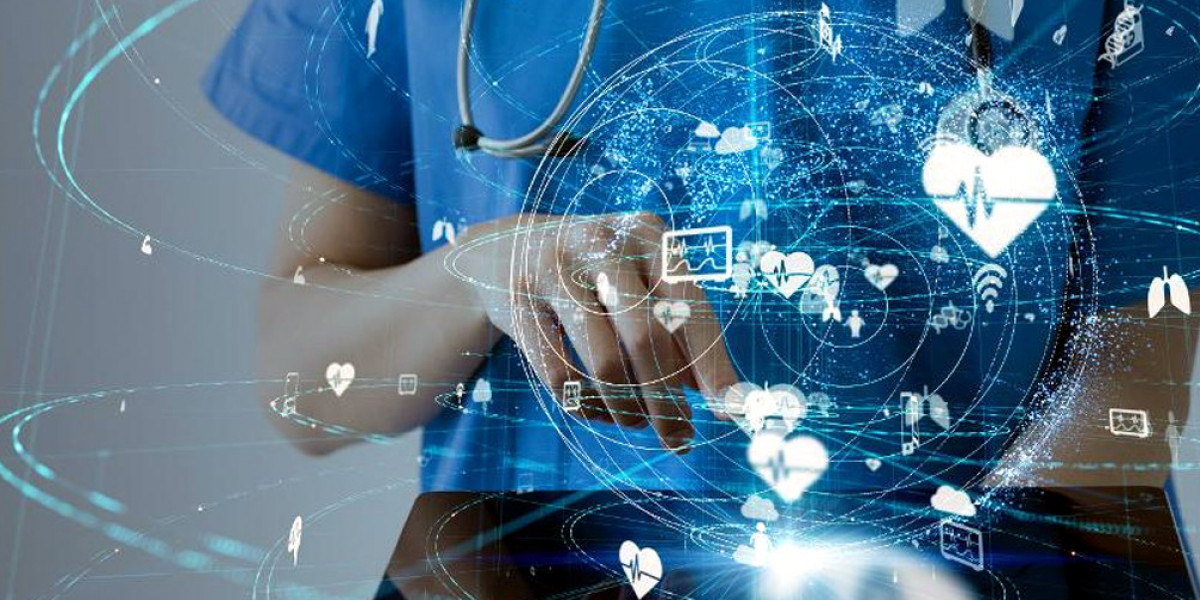This blog explores:
How AI is reshaping diagnostics, treatment, and patient care
Key AI applications in medicine today
Ethical and regulatory challenges
The future of AI-driven healthcare
1. AI in Medical Diagnostics: Faster and More Accurate Detection
a. AI in Medical Imaging (Radiology & Pathology)
AI algorithms, particularly deep learning models, are revolutionizing radiology by detecting abnormalities in X-rays, MRIs, and CT scans with higher accuracy than human doctors in some cases.
Google’s DeepMind can detect breast cancer from mammograms with 11.5% greater accuracy than radiologists.
IBM Watson for Oncology analyzes medical records to suggest personalized cancer treatments.
PathAI helps pathologists diagnose diseases like cancer and tuberculosis faster by analyzing tissue samples.
b. Early Disease Prediction
AI models analyze electronic health records (EHRs), genetic data, and lifestyle factors to predict diseases before symptoms appear.
Apple Watch’s ECG feature detects irregular heart rhythms (AFib) early.
Google’s AI predicts acute kidney injury (AKI) 48 hours before onset.
c. AI in Genomics & Personalized Medicine
AI accelerates genome sequencing, helping doctors tailor treatments based on a patient’s genetic makeup.
DeepVariant (Google AI) improves DNA mutation detection.
Tempus uses AI to match cancer patients with the most effective therapies.
2. AI in Treatment: From Drug Discovery to Robotic Surgery
a. AI in Drug Development
Traditional drug discovery takes 10+ years and billions of dollars. AI cuts this time by analyzing vast datasets to identify potential drug candidates.
DeepMind’s AlphaFold predicts protein structures, accelerating drug design.
BenevolentAI uses AI to repurpose existing drugs for new diseases.
b. AI-Powered Robotic Surgery
Robotic-assisted surgeries improve precision, reduce human error, and shorten recovery times.
Da Vinci Surgical System assists surgeons in complex procedures.
AI-guided robots perform autonomous suturing and tumor removal.
c. Virtual Health Assistants & Chatbots
AI chatbots like Symptomate and Ada provide preliminary diagnoses, reducing unnecessary hospital visits.
Babylon Health offers AI-powered consultations.
Woebot (AI therapy chatbot) helps with mental health support.
3. AI in Patient Care & Hospital Management
a. Predictive Analytics for Hospital Workflow
AI optimizes staff scheduling, bed allocation, and emergency response by predicting patient admissions.
Jvion’s AI predicts patient readmissions, reducing costs.
GE Healthcare’s Command Center uses AI to streamline hospital operations.
b. Remote Patient Monitoring (RPM)
Wearables and AI track vital signs in real-time, alerting doctors to critical changes.
Biofourmis’ AI detects heart failure exacerbations early.
Current Health’s wearable monitors COVID-19 patients at home.
c. AI in Mental Health
AI-powered apps analyze speech and behavior to detect depression, anxiety, and PTSD.
Replika (AI companion) provides emotional support.
Ellie (virtual therapist) assesses PTSD in veterans.
4. Ethical & Regulatory Challenges
a. Data Privacy & Security Risks
HIPAA compliance is critical as AI handles sensitive patient data.
Cybersecurity threats (e.g., ransomware attacks on hospitals).
b. Bias in AI Models
Racial and gender biases in training data can lead to misdiagnoses.
MIT study found AI misdiagnosed darker-skinned patients more often.
c. Regulatory & Legal Concerns
FDA’s evolving AI regulations for medical devices.
Who is liable if an AI misdiagnoses a patient?
5. The Future of AI in Healthcare
a. AI + Blockchain for Secure Medical Records
Decentralized patient data storage to prevent breaches.
b. AI-Powered Nanobots for Targeted Drug Delivery
Tiny robots delivering drugs directly to cancer cells.
c. Fully Autonomous AI Doctors?
IBM predicts AI could replace 80% of doctors’ tasks by 2030.
Conclusion
AI is not replacing doctors but augmenting their capabilities, leading to faster diagnoses, personalized treatments, and improved patient outcomes. However, ethical guidelines, regulatory frameworks, and human oversight remain crucial.
The future of healthcare is AI-driven, patient-centric, and data-powered—ushering in an era where preventive care and precision medicine become the norm.






